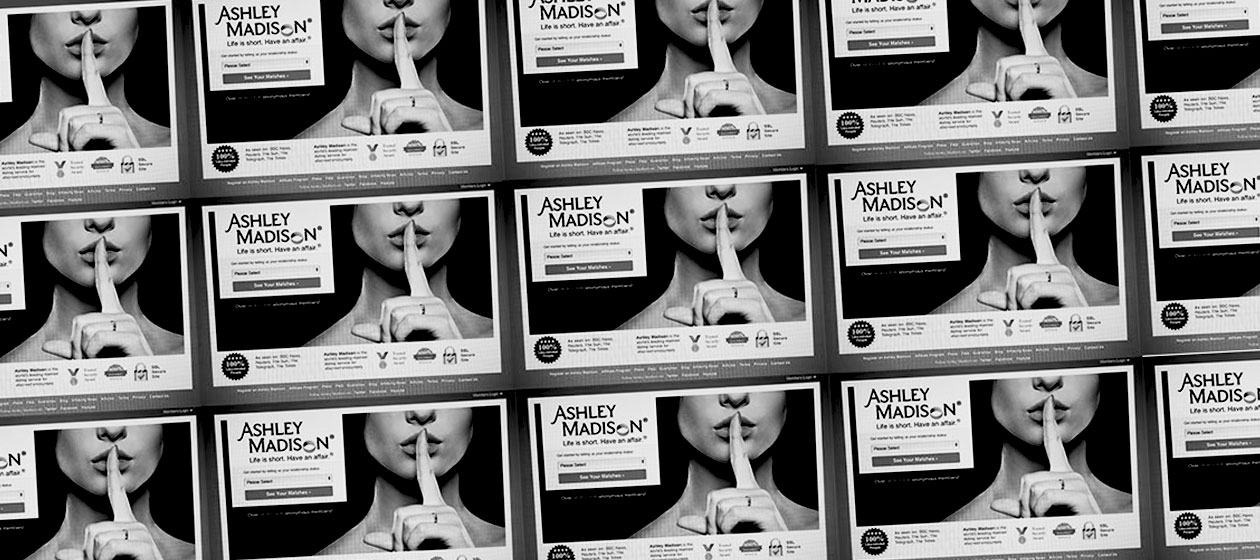Why the identities of Ashley Madison's clients are none of your business
Even adulterers deserve their privacy


A free daily email with the biggest news stories of the day – and the best features from TheWeek.com
You are now subscribed
Your newsletter sign-up was successful
Let me start by saying this: What happens in your marriage is none of my damn business. Cheating on spouses is as old as the institution of having spouses, and while I believe very strongly in the sanctity of promises and one's word, I also know that I'm not sleeping in your bed.
I further know that the recent Ashley Madison data dump — ostensibly a lot of information about a lot of terrible spouses — tells us nearly nothing about the people involved (other than that they were almost exclusively men and thus probably didn't actually do much Ashley Madison-facilitated cheating). We don't know who's a raging asshole, who's in an open marriage, who sought discrete physical pleasure while staying emotionally loyal to a partner who cannot have sex, or who signed up in a paroxysm of anger and regretted it the next day. The only people who know what's going on in a marriage are the people in that marriage (and sometimes not even them), and the infidelities of strangers are none of anyone else's business.
Unless. Unless other factors make it very much my damn business. Unless those strangers are in a position of cultural or political power and have used that power to police other people's sexual lives — like former reality TV star and Ashley Madison client Josh Duggar, or politicians like (to take but one example) David Vitter, the U.S. senator from Louisiana and a known habitué of prostitutes. If you make your living by peddling a twisted, shaming notion of sexual purity (Duggar), or advance your political career by peddling hate against people whose sexuality you don't like (Vitter), well then, yes, I think the American people have a right to know the depths of your hypocrisy, and the American press has a duty to report it.
The Week
Escape your echo chamber. Get the facts behind the news, plus analysis from multiple perspectives.

Sign up for The Week's Free Newsletters
From our morning news briefing to a weekly Good News Newsletter, get the best of The Week delivered directly to your inbox.
From our morning news briefing to a weekly Good News Newsletter, get the best of The Week delivered directly to your inbox.
Recent history is fairly littered with cases of shameful sexual behavior that should, in fact, matter to the American people. Consider former South Carolina Gov. Mark Sanford, whose marital infidelity should have been of public interest not because of the infidelity, but because in the course of conducting his affair, a sitting governor secretly left the country, for days on end. Or former Rep. Anthony Weiner, a politician known for his passionate defense of women's rights, whose sexting scandal revealed an enthusiastic willingness to sexually harass women. And let's not forget Duggar's far more serious scandal: He may be a cheating Bible thumper (and porn addict?), but Duggar also sexually molested several girls while in his teens, an act that is not only far more heinous than marital infidelity, but also an actual crime.
And yet. Absent such mitigating circumstances, what other people do with their bodies is simply none of my business. Or yours. Private behavior shouldn't become public fodder just because we get a contact high from the schadenfreude.
I recently advocated for a radically more honest and open approach to sex and the human body, and I would argue that such honesty demands that we acknowledge just how hard monogamy can be — but increasing our honesty about humanity in general isn't the same as revealing the private details of individual lives, especially when it's done indiscriminately. We need to oppose (and seek legal solutions against) actions such as the Ashley Madison hack and data dump much in the way that we need a Constitution — not to protect the people we like when they do things we admire, but to protect the rights and values on which this nation was founded.
Just as I have a right to privacy when doctors input my medical history into their databases, assholes who cheat on their spouses have a right to do so away from the prying eyes of my internet search engine.
A free daily email with the biggest news stories of the day – and the best features from TheWeek.com
Like the Sony email hack and the dump of celebrities' nude photos last year, the Ashley Madison story revealed the kind of information that many of us are happy to gawk and/or laugh at. It feels like comeuppance. It feels like the little guy getting to take a swat at hubris.
But it's not. Incidents like these are actually the work of people with no accountability and a frightening amount of tech skill reaching into the lives of individuals and upending those lives at will, for their own purposes.
You and I have a right to know about the moral hypocrisy of Duggar, Vitter, Sanford, and Weiner, et al, and the press has both a right and a duty to report on it.
But we don't have the right — no one has the right — to destroy the lives of thousands of other people on the way, schadenfreude be damned.
Emily L. Hauser is a long-time commentary writer. Her work has appeared in a variety of outlets, including The Daily Beast, Haaretz, The Forward, Chicago Tribune, and The Dallas Morning News, where she has looked at a wide range of topics, from helmet laws to forgetfulness to the Israeli-Palestinian conflict.
